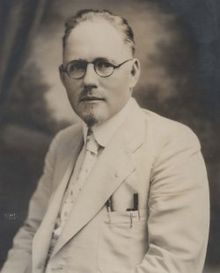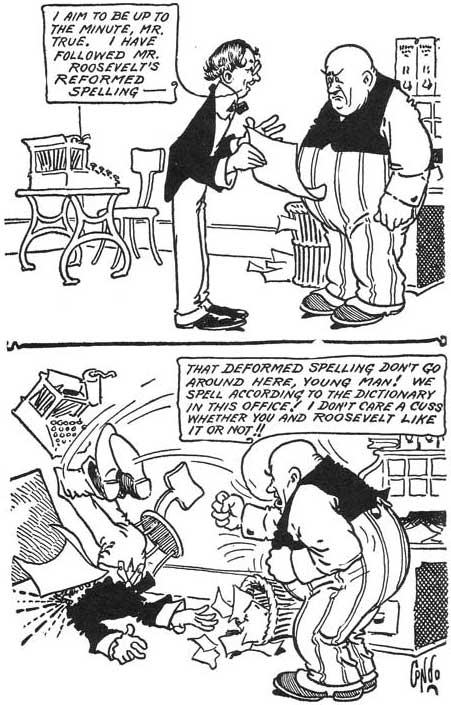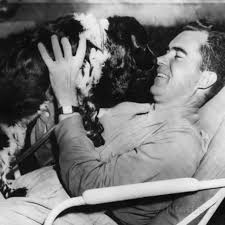the case of Lawrence Dennis
Wednesday, June 1st, 2011This is an experiment. I have taken the brief passages concerning Lawrence Dennis — a rather eccentric person in American history, no?, as presented in White Protestant Nation, by Allan J Lichtman, and posted them here. It’s a slice of the story of how Lichtman presents his view of the history of the “conservative movement” through nine decades, and by slicing out the obscure figure of Lawrence Dennis, I have a conspiratorial connecto that leads from Technocracy through Fascism, (and the internal war against Fascism as rationalization for McCarthyism as “fair turn-about”) on to acceptance of a “leviathan state” by Cold War Conservatism and ends in a carefully planned election of Ronald Reagan.
Is this a convincing story? No, but I do find it amusing, and I trust somewhat suggestive of the way people can siphon off pieces of history to fit a narrative.:
page 78: Political theorist Lawrence Dennis gave a sophisticated twist to right-wing thought in The Coming American Fascism, which argued that an Italian – or German-style corporate state was preferable to an otherwise certain communist takeover of the United States. He said that the United States had better prepare for fascism and make sure that the “right people” ran the new order. The technocratic movement that swept across America in the early 1930s, with appeal to both the right and the left, also influenced Dennis’s work. The technocrats preached that with expert planning and direction America could efficiently utilize resources and labor to end the depression and create abundance. Dennis claimed to have analyzed social trends dispassionately, but the very title of his book made him a notorious figure.
page 119-120: In July 1942 the Roosevelt administration for the first time deployed its police powers against the right. About six weeks after federal agents captured a team of German saboteurs in the United States, prosecutors indicted for sedition twenty-eight German agents, Bund members, and far-right activists including Elizabeth Dilling of the Mothers Movement, and shirt leaders Gerald Winrod and Joseph Pelley. The indictment named the America First Committee and antiwar mother’s groups but no left-wing opponents of war. The trial began in 1944 under new indictments that dropped the antiwar groups and added the alleged pro-fascist Lawrence Dennis. Prosecutors charged defendants with violating the Smith Act of 1940 by conspiring with Nazi agents to overthrow the US government. The trial dragged on through eight inconclusive months and the deaths of the presiding judge. In 1946 a new judge dismissed all charges, ruling that a new trial would be a “travesty of justice”.
Conservatives charged the president with chilling free speech and tarring his political opposition as anti-Semitic and pro-fascist. “The crackpots in the so-called sedition trial,” Sterling Morton wrote to Alf Landon, “were the victims of just what the New Dealers would have liked to subject you, Bob Wood, Lindbergh, myself and others if they hadn’t felt that we had too many friends, too much standing, and too many resources to make it worth while.”
page 133 (memo to RNC in 1942): Dennis warned that eventually it would not matter whether Democrats or Republicans controlled the government. To fight “Communist sin,” America had to build a bigger and more invasive government than ever before contemplated in its history. Such a big government regime would strive to master the world and placate America’s masses at home with “New Deal boons.” You couldn’t “plump for WPA projects for foreigners and none for the home folks,” he wrote. A postwar crusade would keep Democrats in power for a while, but soon party would become irrelevant. Neither Democrats nor Republicans could escape the iron logic of the leviathan state. The antimcommunist campaign would be of “such cosmic magnitude and such indefinite duration that the national undertaking could only be rationally carried out by a single and necessarily, self-perpetuating regime.” Moreover, postwar government would have to deal with the contradiction between lingering imperialism abroad and Jim Crow at home.
pages 145-146: Maverick conservative analyst Lawrence Dennis saw his 1942 predictions of Democratic victory and a leviathan state fulfilled in the Truman Doctrine. “Truman should win in a walk in 1948,” he wrote. “The Republicans, having accepted the internationalist doctrine in the bi-partisan foreign policy, now lack a basis for a successful opposition. … Accepting the Truman doctrine for a holy war on communist sin all over the world commits America to a permanent war emergency. … The executive has unlimited discretion to wage undeclared war anywhere, anytime he considers our national security requires to blow to be struck for good against sin.” Why start with Greece and Turkey? “Answer: the Standard Oil monopolies in mid-east oil.”
page 203: As analyst Lawrence Dennis had predicted in 1942, the crusade against “Communist Sin” meant adjusting conservative ideas to accommodate big government. An early warning came in 1952 from rising conservative star William F Buckley Jr. “We have to accept Big Government for the duration,” he wrote, “for neither an offensive nor defensive war can be waged, given our present government skills, except through the instrument of a totalitarian bureaucracy within our shores.” Conservatives had no choice but to embrace “the extensive and productive tax laws that are needed to support a vigorous anti-Communist foreign policy.” Moreover, if “[conservatives] deem Soviet power a menance to our freedom (as I happen to) they will have to support large armies and air forces, atomic energy, central intelligence, war production boards, and the attendant of centralization of power in Washington.”
page 276 : The “growth and development of a thought-control system,” including “the press, radio, TV, movies, book publishing, and education kept either party from challenging the liberal state. Echoing conservative analyst Lawrence Dennis’s warnings from the 1940s, Jones wrote that neither party could resist the lure of leviathan government. He wrote that if Republicans won in 1968, with $200 billion a year to blow, with no real accountability,” they too would exploit “not only the power, but the money of the Federal Government.”
William Baroody, president of the American Enterprise Institute, offered a similarly grim prognosis. He said that if a liberal malaise swept Democrats from office, conservatives still lacked the ideas and infrastructure needed to turn electoral success into policy change. Conservative reform “requires a well thought out set of ideas concerning policy if it is to achieve its purpose.” Instead conservative thinkers were “a lonely lot, supported by only a few. … The alliance with men of affairs must be made now.” For Richard Ware of the Relm Foundation, which provided financial assistance to conservative scholars, conservatives had to use their resources to “change the tone of academic orthodoxy” through a long-term process that “prepares a climate of thought, ultimately, in which the election of 1980 may be, for a change, uphill-going for the left.”





